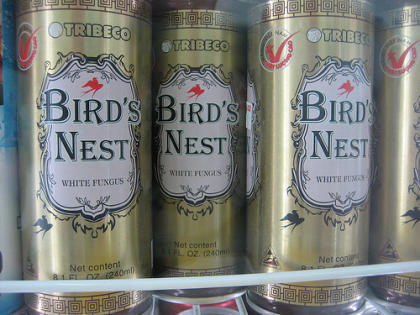Should Your First Property Be an Investment (Or Just to Live in)?
To Singaporeans, property isn’t just an investment. It’s more like that magic lamp in Aladdin. People seem to think it makes you rich, improves your love life, and probably cures cancer. It might explain why Singaporeans rush to invest in it asap. Not a bad idea; but before you make your first house a pure investment (e.g. you rent the whole thing), you’d best make the right preparations. We take a closer look in this article:

And if you tenants need me, I’ll be sleeping in this playground here.
Owner Occupancy vs. Pure Investment
In some sense, every property’s an investment. Even if you don’t rent out your house, it’ll still sit there and accumulate value, year-on-year.
But some people aren’t content to wait. They want their property to be a cash-generating asset, and they want to see bigger returns. So the first house they buy isn’t for shelter, it’s purely to generate money. That’s why shoebox flats surged in 2010 to 2011: Wannabe property tycoons used their limited funds to get whatever private housing they could, then lived with their parents (or whoever).
That shoebox craze is over. But even now, first-time home buyers snap up units they have no intent to stay in. Is it a good strategy? It all depends…
The Pros
If you have somewhere to crash, you might be tempted to play landlord from the start. In which case, you can revel in:
These days I just gargle with it.
Higher Returns
We have over four million people crammed on this island. If you dug a deep enough hole you could probably charge rent for it, let alone for a good house.
So say you buy a $1 million dollar condo, and rent it out. During that time, your monthly loan repayments will probably be around $2,000 – $3,000.
But most condos generate between $4,000 – $4,500 when wholly rented out. So in effect, the tenant will be paying the housing loan for you.
Now, say you eventually sell the place. Whether you sell high or low, your tenants would have paid the bulk of the costs, not you. All things being even, you’d see higher returns at resale as a landlord than as an owner-occupier (who’s been making loan repayments out of pocket).
Side Income
As mentioned above, rental income usually exceeds the cost of loan repayments. You can make a side-income this way, or you can bust your ass working two jobs. Your call.
Speaking of which, the surplus depends on the home loan interest rates. If you get the cheapest home loan, you’ll earn a lot more. You can check sites like SmartLoans.sg for the lowest home loan rates.
Pffft. How much work can tenant requests be?
The Cons
The method is not risk-free. Every so often, a first-time investor gets bitten by one of the following:
Not Having Your Own Place
Facing Vacancies and Unreliable Tenants
Assuming You Can Get a Second Property
Not Having Your Own Place
So, let’s say your first property is rented out. This means you have absolutely no place to stay, except your mum’s house or something.
Well, you better not get married, annoy her, or otherwise move out.
If you ever need to move into your property, it means kicking out the tenant(s). Even if you don’t mind tenants as flat-mates (something that typically requires more patience than the Dalai Lama has), your rental income will be diminished.
And if you have a shoebox, renting out rooms is obviously not an option. Your either become an owner-occupier, or sell the property.
Glad you’re moving in with us, landlord! Otherwise it’s so hard to find another player at 4 am.
So I’ll Sell It. Big Deal.
Should you choose to sell, you’ll face the SSD (Seller’s Stamp Duty). It’s as follows:
Selling on first year of ownership – 16% of market value or purchase price (whichever is higher)
Second year – 12%
Third year – 8%
Fourth year – 4%
And do remember, you need to sell it if you want to buy a BTO flat.
Simply put, your investment can become a liability, if you’re reliant on rental income to pay the home loan. If you can afford the home loan without a tenant, you merely become an owner-occupier.
Facing Vacancies and Unreliable Tenants
Prolonged vacancies are rare in Singapore. So are unreliable tenants, who might disappear while owing three months rent. But “rare” isn’t the same as “does not happen“.
There are occasions when the rental market is bad. You can still find a tenant when that happens, but you may not find a tenant who can meet your desired price. You might even need to drop the rent, to the point where it’s barely covering the loan repayments.
As for tenants who vanish while owing back rent…well you better have an emergency fund for those situations. Don’t count on recovering the amount; it might never happen.
I left the remainder of the rent in the Piggy Bank. Been great, gotta go.
3. Assuming You Can Get a Second Property
Hang on a second. Rental income is fantastic, so by the time you need a second property you can surely afford one right?
Yeah, if you’re still living in 2008. These days, the government looks at multiple-property buyers like you’d look at the vomit from last night’s party: A mess no one’s happy to clean. So their new cooling measures restrict the LTV (Loan-to-Value ratio) to 50% or 40%. Minimum cash down is 25%.
You might need $400k – $600k lying around for your second house.
As for your CPF, remember you’ll need to set aside half the minimum sum (revised constantly here) in your Ordinary and Special accounts. If you can’t make that amount, you can’t use your CPF for the second or subsequent property.
In Conclusion…
There are strong upsides to making your first property buy a pure investment. However, you need to meet the following:
You are not reliant on rental income to cover the loan repayments.
You are confident you won’t need a place to stay, at least within the next five years.
If you don’t meet either of these conditions, don’t play landlord. You’ll just end up selling at a cost.
If you’re still not sure, follow us on Facebook. We’ll enlighten you on issues of rent and housing interest rates.
Image Credits:
Thant Zin Myint, abulic monkey, jenni from the block, aenertia, Images_of_Money
Is your first home a pure investment, or do you live in it? Comment and tell us why!
Get more Personal Finance tips and tricks on www.MoneySmart.sg
Click to Compare Singapore Home Loans, Car Insurance and Credit Cards on our other sites.
More From MoneySmart

 Yahoo Finance
Yahoo Finance 



